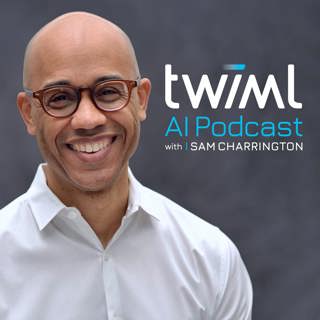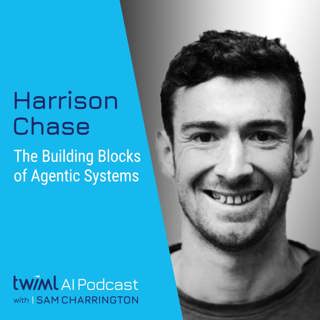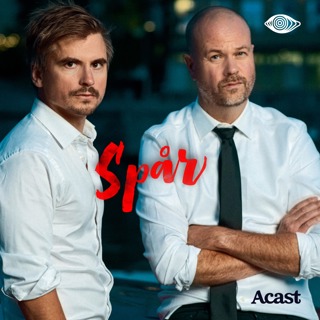
Are Large Language Models a Path to AGI? with Ben Goertzel - #625
Today we’re joined by Ben Goertzel, CEO of SingularityNET. In our conversation with Ben, we explore all things AGI, including the potential scenarios that could arise with the advent of AGI and his preference for a decentralized rollout comparable to the internet or Linux. Ben shares his research in bridging neural nets, symbolic logic engines, and evolutionary programming engines to develop a common mathematical framework for AI paradigms. We also discuss the limitations of Large Language Models and the potential of hybridizing LLMs with other AGI approaches. Additionally, we chat about their work using LLMs for music generation and the limitations of formalizing creativity. Finally, Ben discusses his team's work with the OpenCog Hyperon framework and Simuli to achieve AGI, and the potential implications of their research in the future. The complete show notes for this episode can be found at https://twimlai.com/go/625
17 Apr 202359min

Open Source Generative AI at Hugging Face with Jeff Boudier - #624
Today we’re joined by Jeff Boudier, head of product at Hugging Face 🤗. In our conversation with Jeff, we explore the current landscape of open-source machine learning tools and models, the recent shift towards consumer-focused releases, and the importance of making ML tools accessible. We also discuss the growth of the Hugging Face Hub, which currently hosts over 150k models, and how formalizing their collaboration with AWS will help drive the adoption of open-source models in the enterprise. The complete show notes for this episode can be found at twimlai.com/go/624
11 Apr 202333min

Generative AI at the Edge with Vinesh Sukumar - #623
Today we’re joined by Vinesh Sukumar, a senior director and head of AI/ML product management at Qualcomm Technologies. In our conversation with Vinesh, we explore how mobile and automotive devices have different requirements for AI models and how their AI stack helps developers create complex models on both platforms. We also discuss the growing interest in text-based input and the shift towards transformers, generative content, and recommendation engines. Additionally, we explore the challenges and opportunities for ML Ops investments on the edge, including the use of synthetic data and evolving models based on user data. Finally, we delve into the latest advancements in large language models, including Prometheus-style models and GPT-4. The complete show notes for this episode can be found at twimlai.com/go/623.
3 Apr 202339min

Runway Gen-2: Generative AI for Video Creation with Anastasis Germanidis - #622
Today we’re joined by Anastasis Germanidis, Co-Founder and CTO of RunwayML. Amongst all the product and model releases over the past few months, Runway threw its hat into the ring with Gen-1, a model that can take still images or video and transform them into completely stylized videos. They followed that up just a few weeks later with the release of Gen-2, a multimodal model that can produce a video from text prompts. We had the pleasure of chatting with Anastasis about both models, exploring the challenges of generating video, the importance of alignment in model deployment, the potential use of RLHF, the deployment of models as APIs, and much more! The complete show notes for this episode can be found at twimlai.com/go/622.
27 Mars 202349min

Watermarking Large Language Models to Fight Plagiarism with Tom Goldstein - 621
Today we’re joined by Tom Goldstein, an associate professor at the University of Maryland. Tom’s research sits at the intersection of ML and optimization and has previously been featured in the New Yorker for his work on invisibility cloaks, clothing that can evade object detection. In our conversation, we focus on his more recent research on watermarking LLM output. We explore the motivations behind adding these watermarks, how they work, and different ways a watermark could be deployed, as well as political and economic incentive structures around the adoption of watermarking and future directions for that line of work. We also discuss Tom’s research into data leakage, particularly in stable diffusion models, work that is analogous to recent guest Nicholas Carlini’s research into LLM data extraction.
20 Mars 202351min

Does ChatGPT “Think”? A Cognitive Neuroscience Perspective with Anna Ivanova - #620
Today we’re joined by Anna Ivanova, a postdoctoral researcher at MIT Quest for Intelligence. In our conversation with Anna, we discuss her recent paper Dissociating language and thought in large language models: a cognitive perspective. In the paper, Anna reviews the capabilities of LLMs by considering their performance on two different aspects of language use: 'formal linguistic competence', which includes knowledge of rules and patterns of a given language, and 'functional linguistic competence', a host of cognitive abilities required for language understanding and use in the real world. We explore parallels between linguistic competence and AGI, the need to identify new benchmarks for these models, whether an end-to-end trained LLM can address various aspects of functional competence, and much more! The complete show notes for this episode can be found at twimlai.com/go/620.
13 Mars 202345min

Robotic Dexterity and Collaboration with Monroe Kennedy III - #619
Today we’re joined by Monroe Kennedy III, an assistant professor at Stanford, director of the Assistive Robotics and Manipulation Lab, and a national director of Black in Robotics. In our conversation with Monroe, we spend some time exploring the robotics landscape, getting Monroe’s thoughts on the current challenges in the field, as well as his opinion on choreographed demonstrations like the dancing Boston Robotics machines. We also dig into his work around two distinct threads, Robotic Dexterity, (what does it take to make robots capable of doing manipulation useful tasks with and for humans?) and Collaborative Robotics (how do we go beyond advanced autonomy in robots towards making effective robotic teammates capable of working with human counterparts?). Finally, we discuss DenseTact, an optical-tactile sensor capable of visualizing the deformed surface of a soft fingertip and using that image in a neural network to perform calibrated shape reconstruction and 6-axis wrench estimation. The complete show notes for this episode can be found at twimlai.com/go/619.
6 Mars 202352min

Privacy and Security for Stable Diffusion and LLMs with Nicholas Carlini - #618
Today we’re joined by Nicholas Carlini, a research scientist at Google Brain. Nicholas works at the intersection of machine learning and computer security, and his recent paper “Extracting Training Data from LLMs” has generated quite a buzz within the ML community. In our conversation, we discuss the current state of adversarial machine learning research, the dynamic of dealing with privacy issues in black box vs accessible models, what privacy attacks in vision models like diffusion models look like, and the scale of “memorization” within these models. We also explore Nicholas’ work on data poisoning, which looks to understand what happens if a bad actor can take control of a small fraction of the data that an ML model is trained on. The complete show notes for this episode can be found at twimlai.com/go/618.
27 Feb 202343min






















